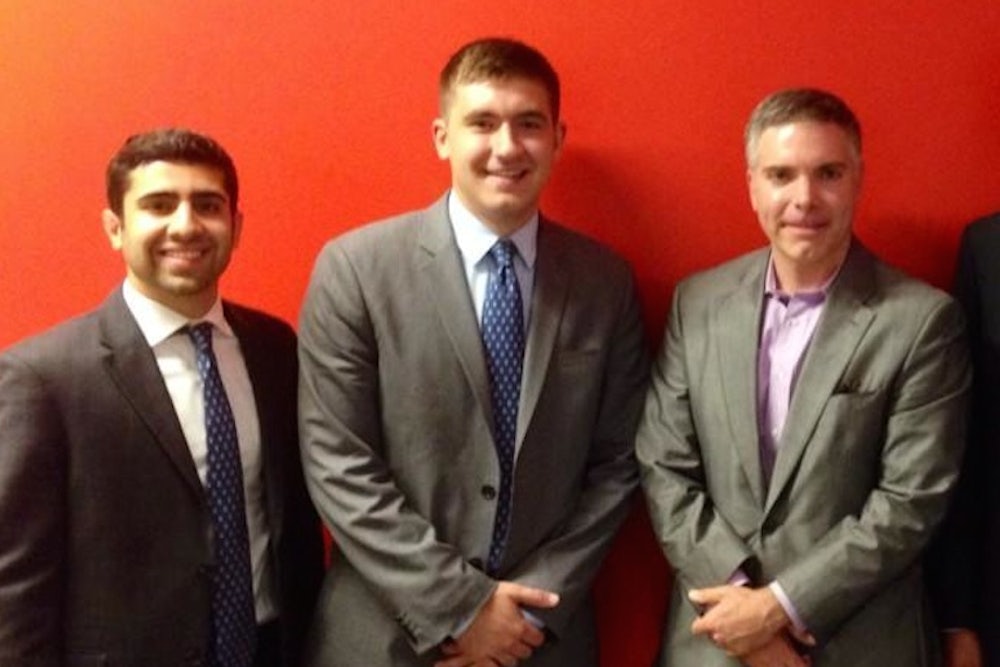Four men stood before a packed crowd at the Cato Institute in Washington, D.C., on Thursday night, and for nearly two hours hashed out the relative merits of libertarian and conservative political philosophy. More than 400 people turned up to hear them; the Institute’s auditorium was filled to capacity, and latecomers even stood to watch the debate screened into small rooms around the building. Nearly 500 more people watched online.
The men were not experts or politicians, but college students—summer interns at the libertarian Cato Institute and the conservative Heritage Foundation. They’d gone through several rounds of tryouts to win the privilege of representing their summer employers in Cato’s fourth annual intern debate—or, as one of the fresh-faced debaters called it, “a referendum on freedom."
The freedom-referendum was moderated Matt Lewis, of the Daily Caller, who applauded the event's very existence. “The Left isn’t having this public debate,” he said. “They’re toeing the line, staying quiet about their differences. The side most willing to publicly hash out their differences will win in the free market of ideas.”

Team Conservative featured Mark DiPlacido, a rising senior at Yale who argued that “unabashed sexual license” is the “number one cause of pain and suffering in this country,” and Louis Cona, a senior at Georgetown who was distraught over the “crisis of broken families and single mothers” and convinced that moral relativism is destroying Western society. Team Libertarian was represented by Georgetown Law student Jack Bussell, who believes "good cannot be defined and imposed from above," and rising Brown senior Philip Trammell, who argued that "anyone who believes in private property cannot deny we have the right to take drugs."
Both sides delivered stock answers on drug legalization, immigration policy, and Edward Snowden. The debate ended in a draw, I guess.
So why did hundreds of D.C. professionals and semi-professionals tune in? Some were former Cato or Heritage interns. Others were there for work. A conservative intern at the Madison Coalition—who spent all two hours of the debate diligently taking notes—assured me she would have gone even if her boss hadn’t asked her to.
Much of the crowd seemed to have shown up just for fun. Jack Crawford, a middle-aged Cato donor, travelled to the event from Silver Spring, Maryland, with his wife. A 24-year-old working at a foreign policy think tank said she was “excited by the prospect of seeing young leaders debating current issues,” but was less excited about providing her name.
A Republican Hill staffer also insisted on remaining anonymous, but he had a better excuse.
“I didn’t know it was interns debating," he admitted. "I thought it was foreign policy experts. I should have read the invitation better.”
